News
Murdoch’s environmental science pioneer: Vale to ‘The Prof’
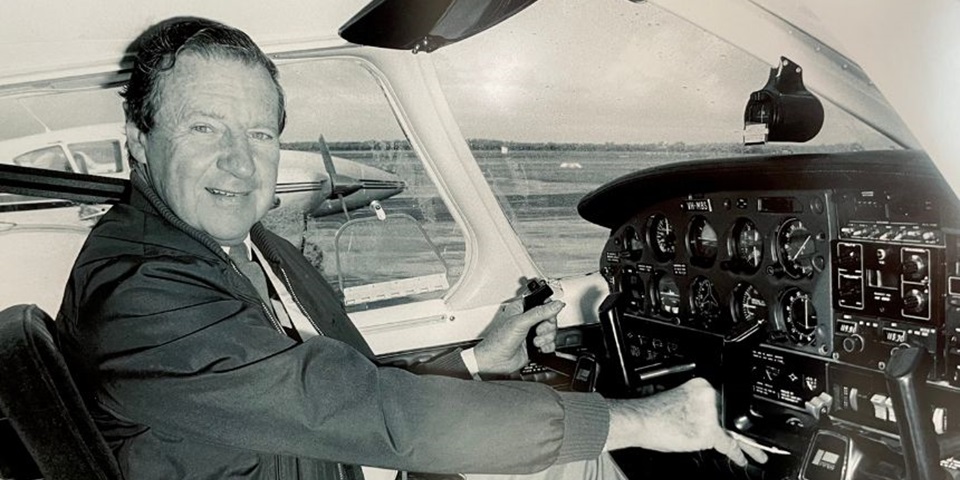
Flicking through Nature while waiting for a meeting, an advertisement caught Desmond O’Connor’s eye: a new university was being established in Perth, Western Australia and they were recruiting a Foundation Professor of Environmental Science.
It was 1972 and having spent the last 10 years in the United States, Professor O’Connor and his family were keen to come home to Australia. He was Chief of the Environmental Sciences Office for the US Army Corps at the Pentagon, then the world’s preeminent engineering body. Before that he taught civil engineering at the University of New South Wales. Before that, he had been a surveyor.
The Professor arrived in Perth on June 28, 1973, and was soon thrust into ‘brainstorming’ and other unconventional ways of thinking by Vice Chancellor Professor Stephen Griew.
“I was accustomed to working in formal institutions with authority structures, this did not seem to be the Murdoch way, so I got used to it,” he wrote in Murdoch Voices, a collection of stories celebrating the University’s first 40 years.
At a retreat for Murdoch’s five foundation professors, the ‘Murdoch ethos’ was born, a new direction for higher education with interdisciplinary courses, flexible programs and enrolment criteria and external studies.
“The Murdoch ethos seemed to offer escape from the suffocating atmosphere of older institutions.” Professor O’Connor wrote.
As a key part of the new academy, Professor O’Connor was to establish the School of Environmental Science, which was an entirely new discipline in Australia.
What he created included the nation’s first true environmental science degree – Queensland’s Griffith University offered environmental studies, but Murdoch’s course was more scientific and based on the disciplines of mathematics, physical science and life sciences.
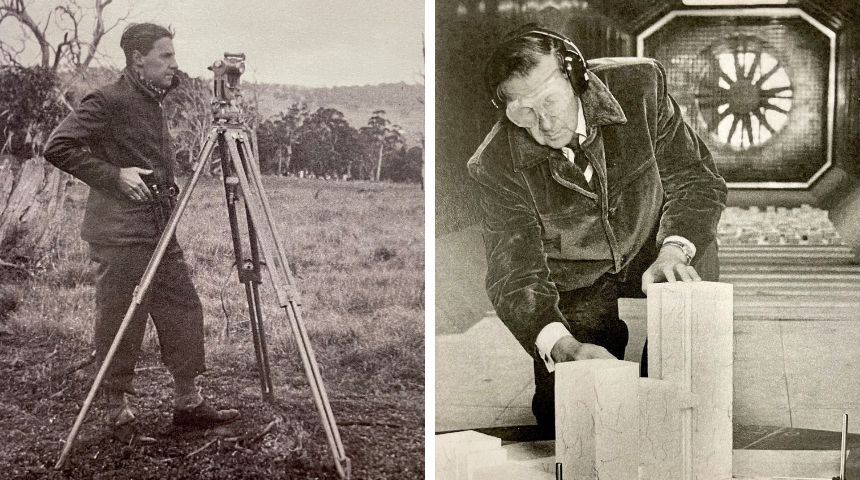
Left: Working as a surveyor in 1960. Right: Setting up a model in the wind tunnel testing facility at Murdoch University in 1981.
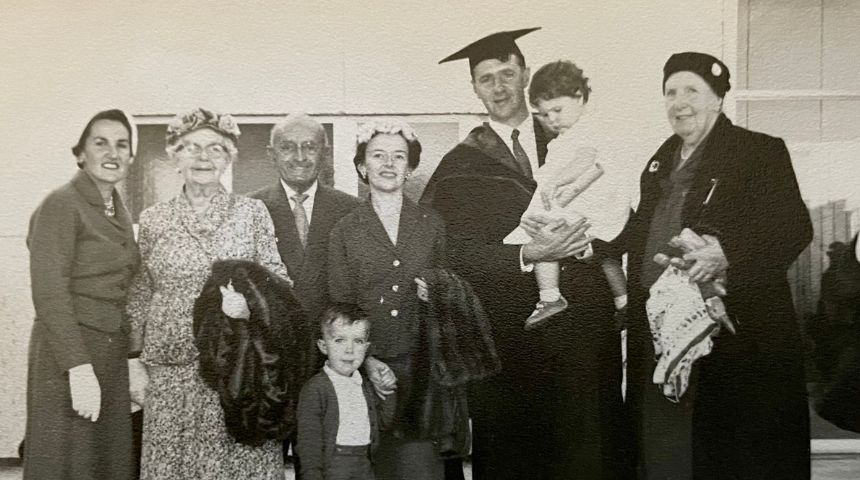
Professor O'Connor graduating from the University of NSW in 1960 with a Masters in Engineering degree.
According to Peter Newman, the first lecturer Professor O’Connor employed at Murdoch, the university can also lay claim to what was arguably the world’s first degree in sustainable development.
“The Prof asked me to create the Population and World Resources degree for those that didn’t have a scientific background,” Professor Newman recalled.
“Back then we didn’t have the words ‘sustainable development’ to describe it, but that’s what it was.”
Those words arrived in 1987 and in 1989 the degree was renamed and continues to be one of Murdoch University’s keystone courses.
In the early 1970s the status of the environment was only just beginning to infiltrate the global mindset and environmental science was still in shadows. The UN held the first Conference on the Human Environment in Stockholm in 1972, but when Professor O’Connor arrived in Perth the following year, he was disappointed to note the public’s lack of knowledge of subject.
Much like the ethos, Professor O’Connor knew a different approach was needed if environmental science was going to be successful at Murdoch. He built a picture of the environment as a system of interacting factors and took a realistic view of what environmental science could offer.
“He had a grasp of environmental science that was very special,” Professor Newman explained of his mentor.
The inclusion of human ecology – the ecology of cities and related planning - initially took a lot of explaining, but Professor O’Connor said the message from Stockholm was clear, “long term, wide-spectrum planning is the key to effective management of natural resources” he quoted the UN.
“We were starting to see the environment as vast interacting system, whose perimeters interacted with one another, and with people,” he wrote, adding that this was what would “make environmental science different from all the other sciences.”
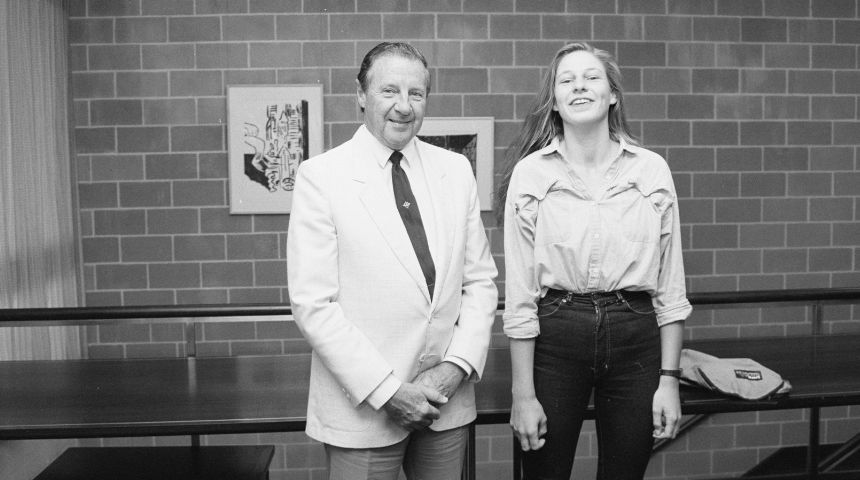
Professor O'Connor with environmental science scholarship recipient Susan Schneider in 1988.
Working with ‘The Prof’ was fun and inspirational according to Professor Newman.
“He had a delightful personality, always very positive and cheery, he loved a good joke and had amazing stories,” he said.
At the end of every year a week-long camp was held where students and staff would work on a project together. The Prof loved to tell stories and they would sit around the campfire and sing.
But there was more to those camps than bonding and toasting marshmallows, they resulted in some of Australia’s first rapid environmental assessments and made important local conservational progress. The Cockburn Wetlands Study in 1976 for example, led to the establishment of the Beeliar Regional Park, a protected biodiversity hotspot and area of cultural spiritual significance for Noongar people.
“It was a very exciting time,” Professor Newman said, “we had amazing students from incredible backgrounds who went on to become WA’s first environmental consultants.”
Professor O’Connor drove a practical learning mindset in his staff and students, that to achieve change you had to go out and work in the environment and with its people. When there were concerns that the proliferation of tall buildings along Perth’s St George’s Terrace could cause a wind tunnel, he built a 50m wind tunnel under the roof of the new environmental science building.
But the Professor also looked beyond urban issues.
“Don’t forget the bush, don’t do everything in the city’ he would say,” Professor Newman recalled.
The Remote Area Developments Group was established and continues to play a pivotal role in improving environmental health conditions in remote communities through the provision of water, sanitation and waste technology.
“It frequently occurs to me just what a privileged profession is the academic world. It was stressed to me by Vice Chancellor Griew, that it was important to contribute to the community which we served,” Professor O’Connor wrote.
Always an innovator, the Professor took his discipline to new heights, both figuratively and literally. He held a commercial pilot’s licence and enjoyed taking environmental science to the air. In Port Hedland he once flew just 50m above the ground to survey mangroves with low-altitude infra-red oblique photography.
A list of ‘flyers’ was pinned outside his office and anyone interested in coming for the ride could put their name down. He was proud that some staff and students had developed interest in flying as a result of participating in his experiments.
Professor O’Connor’s time at Murdoch was but a glimmer in an incredibly bright career.
He retired in 1988 after a decade at the helm of Environmental Science, but in the years after became Deputy Chairman of the Environmental Protection Authority, Principal of the Australian International Flying College, President of the Ryder-Cheshire Foundation for the Relief of Suffering and sat on a number of government boards connected with the environment.
But his greatest love was the Royal Flying Doctor Service, serving as President of the WA operations. He even wrote an outback adventure novella, Phantom Wings Over the North, that was based on his experienced flying across the expanse of WA.
For the Murdoch community, Professor O’Connor’s legacy will always lie in how he truly achieved what his title proclaimed. As a Foundation Professor, he firmly planted the scientific and cultural footings that helped to establish the university as a trailblazer in environmental science, and as a university of difference - that makes a difference.
He summed it up best himself: “The extent to which we influenced events and achieved something substantial from such humble beginnings, confirms the wisdom of our initial choices.”
Vale Professor Desmond O’Connor, 27.09.1926 - 26.05.2023.
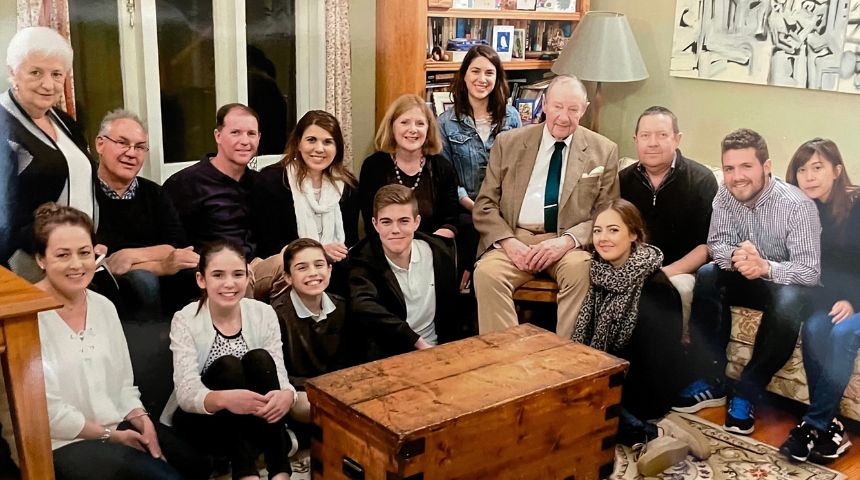
Professor O'Connor with his children and grandchildren.
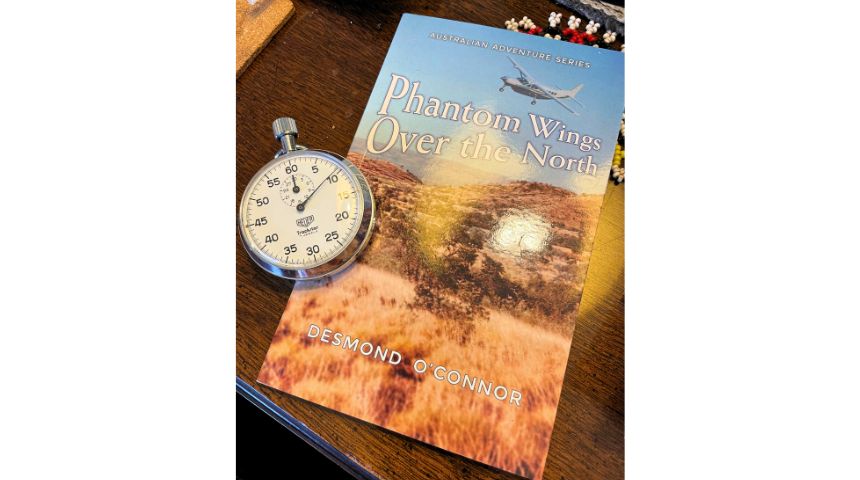
Professor O'Connor's novella was published in 2016.
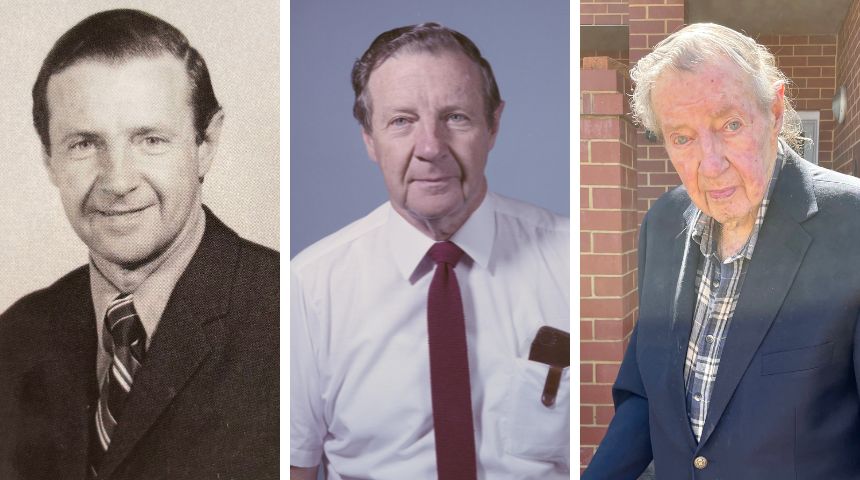
Professor Desmond O'Connor.
View a short video about Professor Desmond O'Connor made by Southern Cross Care.
Please consider a donation to RFDS WA in memory of 'The Prof'.